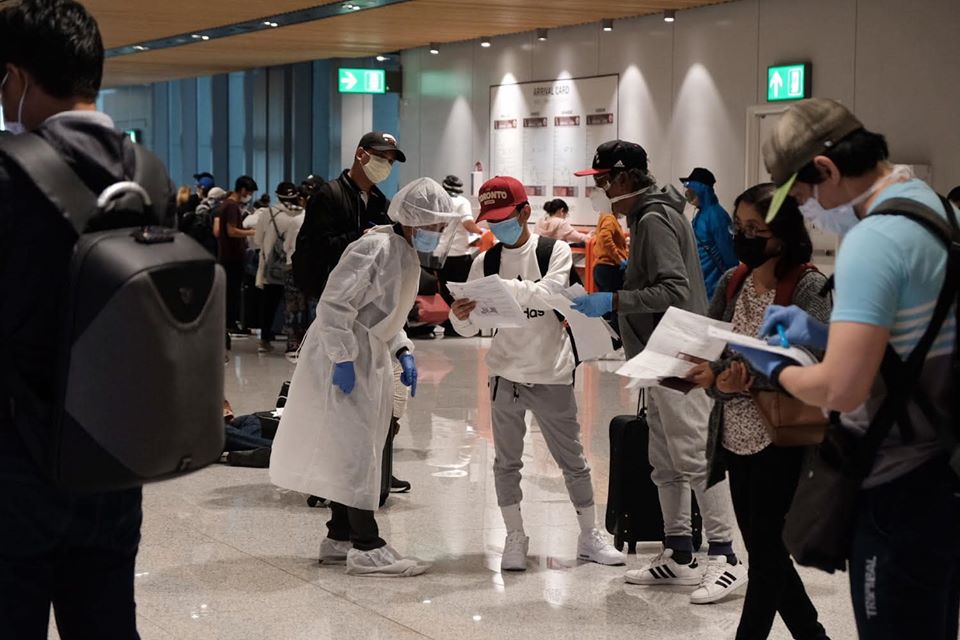International passengers arriving at MCIA told to register online

The Mactan Cebu International Airport Authority (MCIAA) announced on Saturday, July 11, that they have secured accreditations from the Department of Health (DOH) and Research Institute for Tropical Medicine (RITM) to officially start the operation of their molecular laboratory to run COVID-19 tests. | MCIAA Photo
CEBU CITY, Philippines – Commercial international flights at the Mactan Cebu International Airport (MCIA) remain suspended as of July 12 but airport authorities have laid down additional policies as part of its precautionary measures against the coronavirus disease 2019 (COVID-19).
In an advisory sent to members of the media, GMR-Megawide Airport Corporation (GMCAC) announced that all international passengers arriving at MCIA’s Terminal 2 will now be required to register online at least two days prior to their scheduled arrival.
“As of today, all international commercial flights remain suspended at MCIA. All international passengers arriving at MCIA starting July 15, 2020 are required to register using the online MCIA Passenger Arrival Registration Form at least two (2) days prior to departure. The form is accessible through https://mactancebuairport.com/covid-19-registration. A Travel Registration Number (TRN) will be generated once registration is complete,” GMCAC’s advisory reads.
Travelers are likewise advised to secure all documents that will be presented to immigration and quarantine officers upon their arrival.
Presently, MCIA is only accepting international passengers arriving via international sweeper or repatriation flights or rerouted flights from Manila due to quarantine processing limitations.
Last Saturday, July 11, MCIA also announced that their own molecular laboratory dedicated to doing COVID-19 tests for arriving passengers have been given a go-signal from health authorities to start operations.
Read: MCIA molecular lab for COVID-19 tests up and running
MCIA is the country’s first airport to have its own COVID-19 testing facility that is designed to process around 1,500 to 3,000 samples per day.
COVID-19 testing is now mandatory for international passengers arriving in Philippine airports.
According to MCIA officials, non-Overseas Filipino Workers (OFWs) and foreign nationals will be asked to pay P4,900 for their swab tests.
Testing for returning and land-based OFWs and seafarers, on the other hand, costs P4,400. However, the cost of the testing will be shouldered by the Overseas Workers and Welfare Administration (OWWA). / dcb
Disclaimer: The comments uploaded on this site do not necessarily represent or reflect the views of management and owner of Cebudailynews. We reserve the right to exclude comments that we deem to be inconsistent with our editorial standards.
